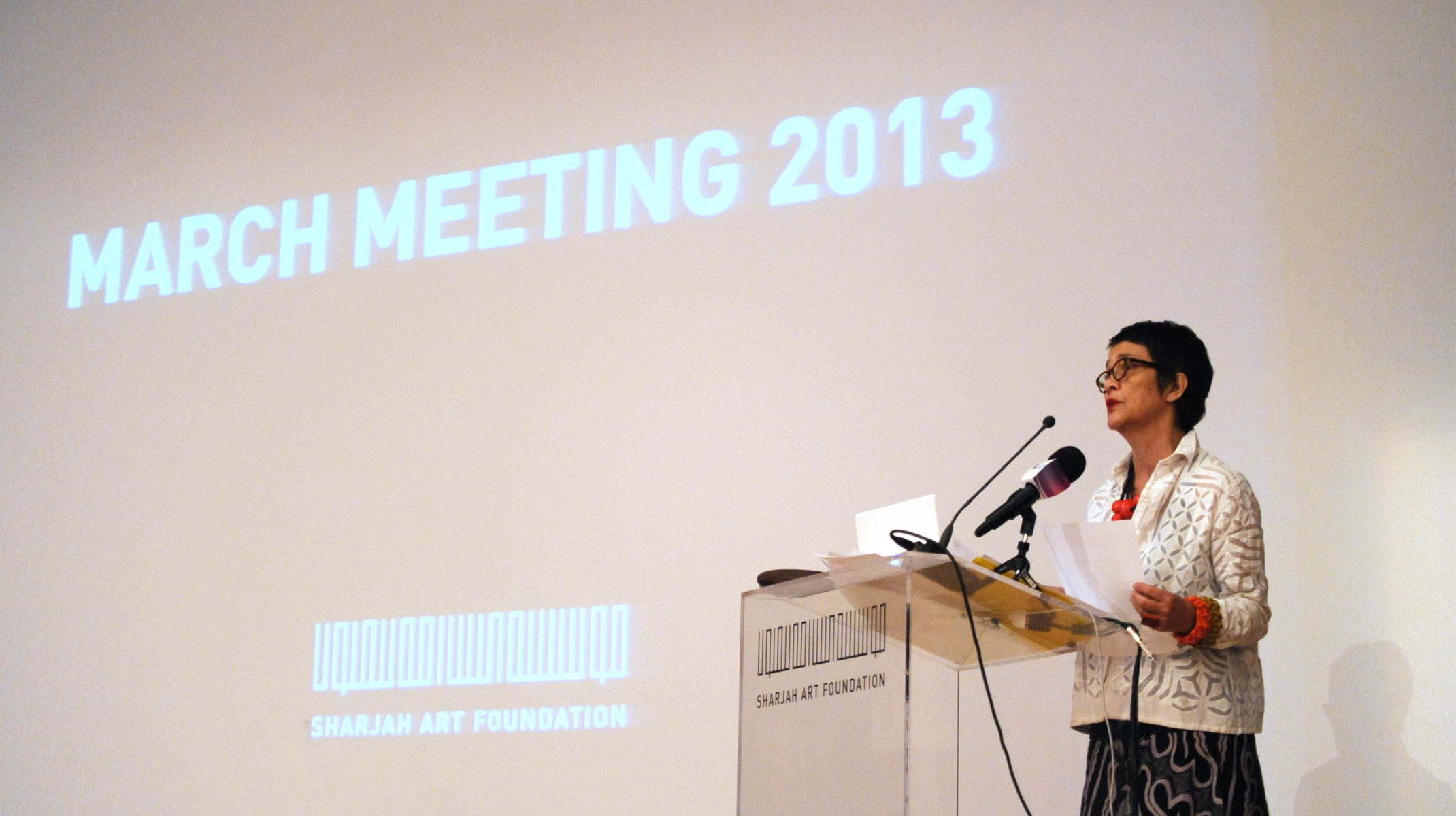Shifting Pivots: Cultural Cartographies of Structures and Practices
March Meeting 2013
Shifting Pivots: Cultural Cartographies of Structures and Practices
Prof. Françoise Vergès
Photo by Alfredo Rubio

search


—
March Meeting 2013
Shifting Pivots: Cultural Cartographies of Structures and Practices
Prof. Françoise Vergès
Photo by Alfredo Rubio

Cartographical charts and maps, despite being mechanisms that can be perceived from different perspectives, were fundamental to the historical development of imperial systems and have historically enabled unequal encounters with others. The development of cultural cartographies requires the notion of a shifting pivot, an understanding of the complexity of cultures and the forces that impact how they are
constructed and perceived. What concerns are implicit in the efforts to preserve and acknowledge specific cultures through their tangible and intangible heritage? How can the omission of voices historically neglected be redressed? How can the politics implicit in attempts to represent heritage be made apparent?
Françoise Vergès is currently Consulting Professor at the Centre for Cultural Studies, Goldsmiths, University of London, UK, Research Associate at Le Collège d’études mondiales, Paris, France, and President of Le Comité pour la mémoire et l’histoire de l’esclavage (France). Vergès has written on the vernacular practices of memory, slavery and the economy of predation, European colonialism, colonial and postcolonial psychiatry, Frantz Fanon, Aimé Césaire, postcolonial museography, and the routes of migration and processes of creolisation in the Indian Ocean. She has worked with filmmakers and artists including, Isaac Julien, Yinka Shonibare and Arnaud Ngatcha. She was a project advisor for Documenta 11, Kassel, Germany, in 2002, and contributed to the 3rd edition of La Triennale in Paris in 2012. She curated two exhibitions in 2012 at Bétonsalon, Paris. Between 2003 and 2010, Vergès was Head of the scientific and cultural development programme for La Maison des Civilisations et de l’Unité Réunionnaise (MCUR), Saint-Paul, France, for which she developed the notion of ‘Museum without Objects’. Her most recent publication was ‘Lives That Matter’ (Intense Proximity, La Triennale Catalogue, 2012) and L’Homme prédateur: Ce que nous enseigne l’esclavage sur notre temps (Bibliothèque Idées, Paris, 2011).
Khaldun Bshara is a conservation architect and anthropologist. He earned his bachelor’s degree in Architectural Engineering from Birzeit University, Ramallah, Palestine (1996), and his master’s degree in Conservation of Historic Towns and Buildings from the Catholic University of Leuven, Belgium (2000). He has doctoral (2012) and master’s degrees (2009) in anthropology from the University of California, Irvine, USA. He is currently the Co-Director of RIWAQ Centre, Ramallah, where he has been working since 1994. Bshara is Editor of Riwaq’s Monograph Series on the Architectural History of Palestine (2010-present), and the author and co-author of a number of books and articles published by RIWAQ including Tashgheel: Riwaq’s Job Creation through Conservation 2001-2011 (2011), Riwaq’s Guidelines for Restoration and Maintenance of Historic Buildings in Palestine (2005), and Ramallah, History and Architecture (2002).